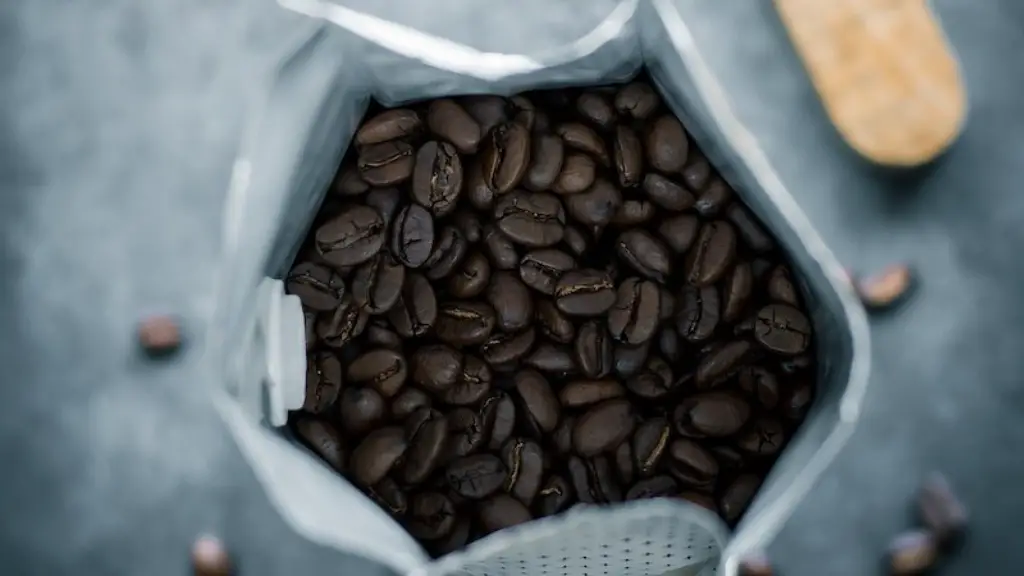Most people love coffee, and many drink it every day. But how much is too much? Is there an ideal daily amount of coffee that we should drink? This article will explore the considerations around how much coffee we should drink and give helpful tips on maximizing the health benefits with minimal risks.
Coffee has been an important part of life in many cultures for centuries. It is known for its ability to boost energy, improve alertness, and increase focus. It may also have some health benefits, such as reducing the risk of developing certain types of cancer and Alzheimer’s disease.
The answer to how much coffee we should drink is nuanced and depends on several factors. We should consider our individual sensitivity to caffeine, which can vary greatly from person to person, as well as the type of coffee we drink. A cup of brewed coffee has about 95mg of caffeine, whereas an espresso has about 75mg. Some individuals may be more sensitive to caffeine than others and therefore should limit their intake.
Experts have put a guideline amount of coffee at drinking up to four cups a day, though any amount more than 400mg may lead to potentially negative side effects, such as insomnia, breathing problems, and nausea. Additionally, dairy-based and sugary coffees, such as macchiatos and lattes, can be loaded with calories and fat, so more caution should be taken when adding them to your daily coffee routine. It can also be a good idea to space out coffee drinking throughout the day, rather than drinking multiple cups in quick succession.
At the same time, coffee can be a healthy addition to a balanced diet. Studies have found that coffee drinkers may live longer than those who don’t drink coffee. It has been linked to improved cardiovascular health, reduced risk of type 2 diabetes, and even improved cognitive function.
Because the health benefits and individual tolerances vary, there is no definitive answer on how much coffee one should drink in a day. If possible, it is best to talk to a healthcare professional to find out what amount is best for you. Keeping track of how much coffee you’re drinking and looking out for any adverse effects can help ensure you’re staying within healthy limits.
Insights About Coffee Grinds
One key to great tasting coffee is using the right grind. Coarse or medium-coarse grinds are best for French Press or pour over coffees, while espresso requires a fine grind. If the grinds are too fine they can lead to over-extraction, resulting in an overly bitter taste. Generally the finer the grind, the stronger the coffee. If brewed correctly, the result will be an aromatic and smooth-tasting cup.
The type of grind can also affect the speed of brewing. The finer the grind, the longer the coffee will take to brew. This difference can be important when trying to determine the ideal amount of coffee to use in a cup. A medium grind will brew faster than a fine grind, resulting in a less strong flavor, but if a finer grind is used with shorter brewing time, the result can be a “weaker” tasting cup.
In addition to grind size and brewing time, other elements such as water temperature and the type of coffee beans can have a significant impact on the flavor of brewed coffee. Water that is too hot will lead to over-extraction, whereas water that is too cold can cause the coffee to taste sour. The kind of roast and type of coffee beans used can also have a considerable impact on individual tastes, with some preferring a full-bodied dark roast while others may go for a light roast with a more delicate aroma and taste.
Brewing Methods and Taste
Whether you’re brewing coffee at home or picking up a cup from your favorite café, different brewing methods will offer different flavor profiles. Some of the most common ways of preparing coffee are filter coffee, espresso, French press, and cold brew. Filter coffee is likely the most popular brewing method and usually produces a milder brew with fruity notes and a light body. Espresso is a stronger and more intense brew, with the coffee grounds tightly compressed for an intense flavor.
French press coffee can offer a more full-bodied, smoky flavor, due to the low water temperature, longer brewing time, and coarse grinds. Cold brew is made by steeping coffee grounds in cold water for an extended period of time and produces coffee that is less acidic and smoother in flavor. Each brewing method produces coffee with its own distinct flavor, allowing coffee drinkers to explore different taste profiles and find their favorite one.
Coffee with Milk and Sugar
Adding milk or sugar to coffee can be a great way to adjust its intensity and flavor profile. Dairy-based milks, such as cow’s milk, almond milk, and coconut milk, can add a creamy texture and sweetness to coffee. Natural and artificial sweeteners, such as sugar, honey, or maple syrup, can also be added to enhance the flavor. The amount of milk or sugar added is completely up to individual tastes, but it’s important to be mindful of the calories and fat content of dairy-based milks and added sugars.
Alternatively, coffee can be enjoyed on its own with no additives, despite the common misconception that “real coffee” can only be enjoyed black. Many people also enjoy adding spices such as cinnamon, cardamom, or nutmeg to their coffee to bring out different flavor notes. Experimenting with different flavor profiles is a great way to find the perfect combination of ingredients.
Misconceptions About Coffee
Though coffee is often seen as a morning pick-me-up, it is actually not a stimulant like many people assume. It actually contains a mild sedative, theophylline, which can help reduce anxiety and contribute to better sleep quality. Coffee can be enjoyed responsibly throughout the day without any negative side effects, as long as the total caffeine consumption remains within healthy limits.
Some people believe caffeine can be habit forming, but in reality, it isn’t as addictive as many make it out to be. Withdrawal symptoms, such as headaches, can sometimes occur when a long-term, heavy coffee drinker cuts down drastically due to the body’’s dependence on caffeine, but those effects are generally not severe and can be managed. Furthermore, the risk of developing an addiction to coffee is low.
In addition, some people assume that coffee will stunt your growth or damage your bones, but in reality, research shows there is no evidence to prove that coffee has any direct effects on growth or bone health. Coffee is actually associated with better bone mineral density, which is a critical factor in bone strength. Overall, there’s no reason to be wary of drinking coffee in moderation.
Coffee and Dehydration
It is no secret that caffeine is a diuretic, causing the body to lose more water than it would normally. But contrary to popular belief, it doesn’t actually cause dehydration. As long as an individual drinks an adequate amount of water along with their coffee each day, there is no reason to worry about any negative impact.
In fact, many studies have found that caffeine may actually help improve hydration levels. Since caffeine is absorbed faster than plain water, it can be used to help people meet their daily fluid requirements. Coffee can actually help reduce the incidence of dehydration and improve overall hydration levels.
Overall, the exact amount of coffee one should drink varies depending on individual tastes and tolerances. But research shows that drinking no more than four cups per day is a safe amount and may offer a variety of health benefits. Of course, it is important to be aware of any adverse effects, such as headaches and nausea, as well as how the type of coffee and coffee drinking habits may affect the health benefits.




